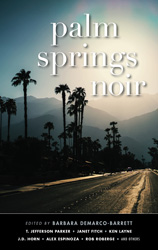Okay, get your minds out of the gutter. I’m talking about the drawers of your desk or file cabinet. Or maybe they’re in a closet or in the garage in cardboard storage box. Do you know what I’m talking about yet?
I’m talking about stories, essays, articles, novels. It’s an all-too-common scenario–you have something that’s finished, or is close to being finished, and you think about sending it out to a magazine or agent, but instead, you file it away for some later date. Maybe somewhere in the back of your mind you think that an editor will come looking for you, that one day you’ll get an e-mail or phone call from an editor asking you what you have hiding in your drawers, pleading with you to let him/her read it.
Wrong.
Until you become a well-published author, there’s an almost 100 percent chance that no one at a paying magazine or respectable publisher will approach you to see what unpublished work you have hiding somewhere. It does happen, but generally you have to be published for that to happen. After I published my first major travel story in Morning Calm (Korean Air’s inflight), I was approached by an Australian magazine to reprint that piece and then a local Southern California publication asked me to write for them, and to give them reprints. Other things have happened as well. But it’s been published writing that has generated that–not just being me, hiding out, waiting.
Other authors I know who have published short pieces or novels or nonfiction books are approached to submit pieces to anthologies or write essays or review books for magazines. The key, though, is that they have something of note that’s already out there.
Pen on Fire would probably still be sitting alone and ignored in my garage if I hadn’t, on my own, taken it out and given it another look.
I’m thinking of that old joke that many of you know, the one where there’s a flood and the town is evacuating all the residents and one guy says, “Nah, I’m not going. I’m waiting for God to rescue me,” so he waits and the floodwaters rise. He goes upstairs and a rowboat comes by with a rescue team aboard, and they try to convince him to join them, but he says, “Nah, I’m waiting for God to rescue me,” so the flood waters keep rising and he climbs up on his roof. A helicopter hovers above him, lowers a rope and he turns it down. “Nah, I’m waiting for God to rescue me.” Of course the waters keep rising, the guy drowns and sometime later he’s in heaven and runs into God, whom he berates. “God, I depended on you and you let me down!” God says, “Hey, I sent you an evacuation notice, I sent a rowboat, I sent a helicopter–what more do you want!”
Okay, publishing is a little different than that, but you get my point (hopefully). You have to take action yourself and it may take more energy and cleverness than you think yourself capable of. But your friends and teachers and mentors who encourage you, who give you ideas, who keep you going–those people are, in effect, performing God-like acts, and you can choose to pay attention to them, or not.



 Support Indie bookshops and this site by purchasing books through my BookShop
Support Indie bookshops and this site by purchasing books through my BookShop
